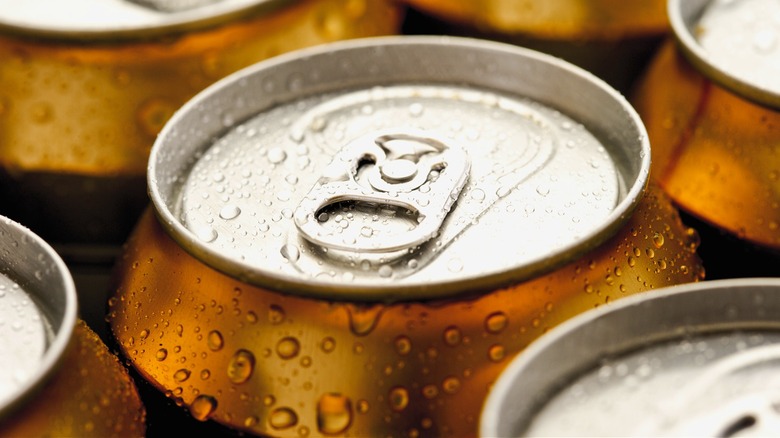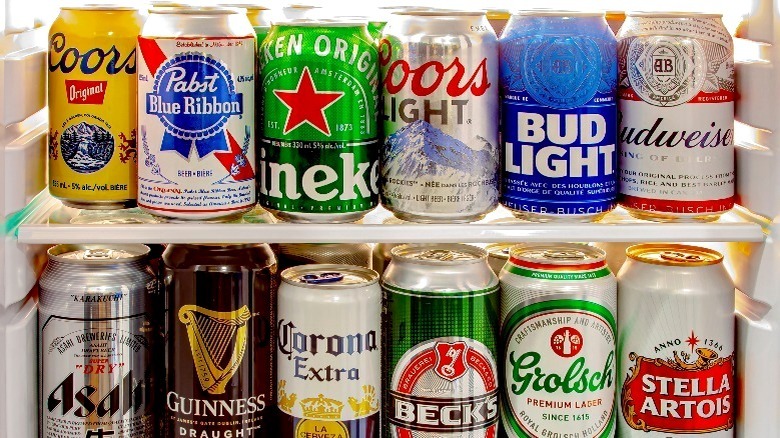Yes, There Is A Proper Way To Store Canned Beer
It doesn't get more American than classic canned beer. In 1935, the Gottfried Krueger Brewing Company sold a couple thousand cans to locals in post-prohibition Richmond, Virginia — the first time anyone had tried beer in a can. It's safe to say that it's been a hit ever since, making up nearly 75% of the multi-billion dollar beer industry in the United States in 2020 (via Brauwelt International).
The dedicated "beer fridge" has a place in many American homes (or perhaps garages). While we might have rolled our eyes at this seemingly excessive notion as kids, we can see the wisdom in it now as adults. If you're going to spend your hard-earned money on alcohol, you better store it right. Otherwise, your next celebration might fall flat. Keep yourself — and your canned beer — cool by following the best storage practices.
To maximize the shelf life of your suds, store canned beer upright in a cold and dry location above freezing. This should be in the range of 40 to 55 degrees Fahrenheit, though you can adjust based on beer type. You should be able to adjust the temperature in your refrigerator, but if you're shelving canned beer next to cooked food, make sure it's not too warm or the heat could affect your brews. The FDA recommends that you keep your appliance at or below 40 degrees Fahrenheit.
Keep your canned beer cold and crisp
While you should keep lagers and pilsners on the colder side and store them in a regular fridge, other beers like it a little warmer. IPAs, ales, bocks, sours, and barleywines fare better in the 50 to 55-degree Fahrenheit range. Porters and stouts are flexible in a 45 to 55-degree Fahrenheit range, and wheat beers can sit anywhere from 40 to 50 degrees.
Beer typically tastes better when it's closer to its "born on" date (when it was packaged), but you can safely drink beer far beyond its expiration date — you probably just won't like the taste as much. The date companies print on beer packaging is a recommended time frame to indicate how long the product is at its best. But remember: This information only applies to unopened beer. After cracking a can open, you'll only be able to drink it for a day or two after.
Canned beer lasts longer in the fridge than at room temperature because heat and movement make your beer age faster. These factors speed up oxidation, which changes the intended flavor. As long as you don't leave your cans rolling and baking in the back of your car's trunk all summer, you don't have much to worry about when it comes to storing canned beer. Cans prevent light and air exposure already — all you have to do is follow these storage tips to prevent your beer from getting skunky.

